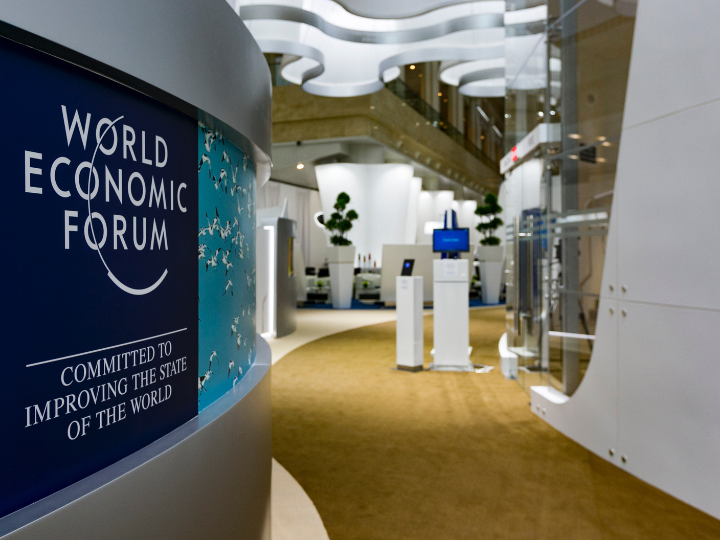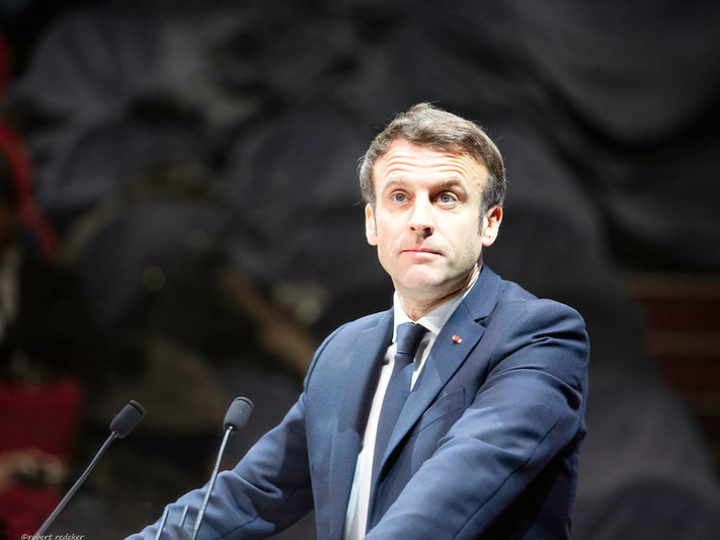by Giles Merritt*
Do we really need Davos? This year’s meeting of the World Economic Forum has triggered more heated arguments than ever about the worth of this jamboree for the super-rich that contrasts so starkly with the plight of the world’s poor. Yet for all its faults, the Davos model could usefully be copied in Brussels.
It would take courage to attempt it when Davos’ image problems are growing. Oxfam greets each meeting with a lengthening tally of multi-billionaires who ‘own’ the global economy, and every time the chorus of disapproval gets louder. A timely FT cartoon captured the public mood: “This year we brought our own snow in our private jet” two Davos delegates explain.
The conferences that have made the Swiss ski resort such a controversial household name began some fifty years ago, and in many ways the WEF looks stronger than ever. Corporate chieftains flock to Davos with undiminished enthusiasm, and political leaders find it a useful platform, even if some now opt for video appearances.
Yet more and more critics are asking what Davos achieves? Its panel discussions focus on the challenges that face humanity, but these topics are already much debated around the world. The WEF claims its “projects deliver concrete and sustainable results, and have a positive impact at all levels of society”, but just how is far from clear. Journalists say they value the interviews and high-level contacts there, but rarely find real news.
Davos’s problem is its global agenda; this is spread so thin that little emerges of practical value. Its meetings are famous for well-intentioned but woolly statements about ‘making the world a better place’. The Davos formula and state-of-the-art networking technologies for connecting participants could, however, work well if narrowly focused on EU policy problems.
Brussels lacks a high-level annual gathering point that could bring together the EU’s movers and shakers. The political machinery of ministerial councils and European Parliament proceedings are of a very different order; they are the bread and butter of EU business, not its brain food. What’s needed is an informal but carefully structured forum for thinkers and doers to look far ahead and ponder strategic thinking for a European project that has been marking time for almost twenty years.
The EU’s ‘Big Bang’ enlargement was its last major step forward. Today’s world is very different, and tomorrow’s will be almost unrecognisable. Europe is mired in low levels of innovation, poor productivity and shrinking shares of global markets. The political stalemates that abound in areas ranging from fiscal and monetary policies to security and development would benefit from a good blast of intellectual oxygen.
A Euro-Davos might provide that, but identifying the need for a new intellectual catalyst is a long way from filling it. Corporate financial support is key, and Big Business in Europe is famously stingy when it comes to backing not just think tanks but universities too. American corporations are thought to be hard-nosed, yet they are often far more enlightened than Europeans who tend, as Oscar Wilde put it, “know the price of everything, and the value of nothing.”
How an annual Euro-summit for fresh ideas should be structured is an open question. It couldn’t be a creature of the EU, with all its rules and limitations, but it’s equally obvious that it would need its blessing. Brussels has a potentially powerful hinterland of think tanks, trade associations, universities and corporate representations to draw on, if these could somehow be federated.
Before Trumpism blighted American politics, European policymakers and analysts wistfully compared Brussels with Washington DC’s combination of vigorous intellectual argument and more humdrum legislative and administrative work. There are many respectable reasons the ‘capital of Europe’ is so different, but there’s also an uncomfortable truth – ‘Brussels’ lacks oomph.
*Founder of the Friends of Europe
**first published in: fFriendsofeurope.org




 By: N. Peter Kramer
By: N. Peter Kramer
